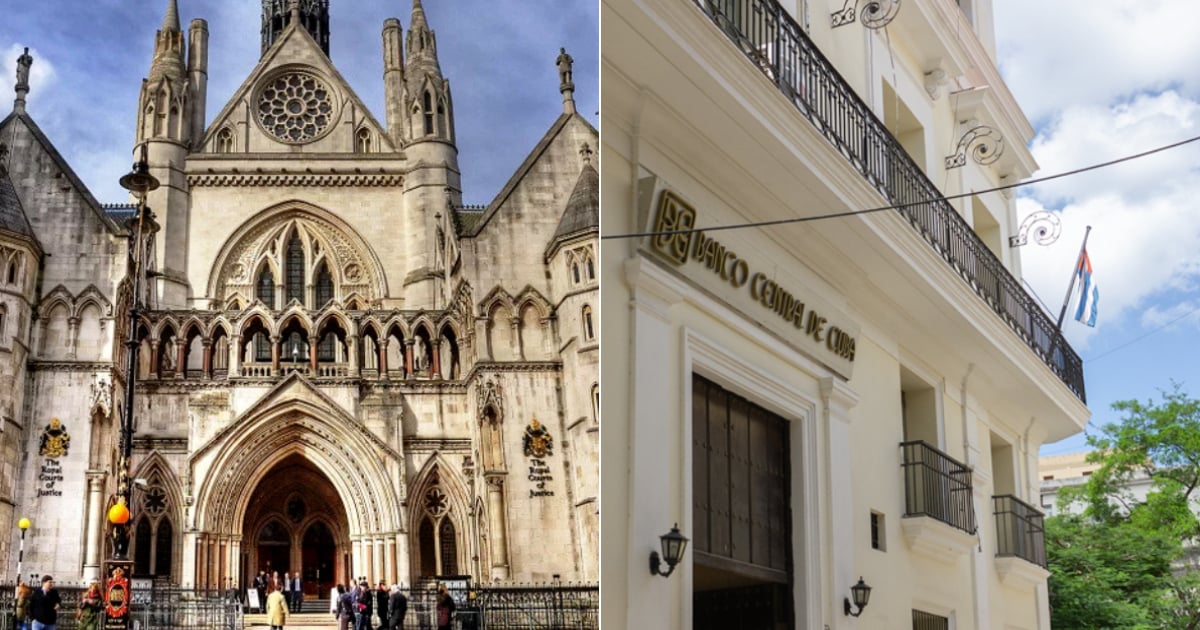
The London Court of Appeal dismissed on Tuesday the appeal filed by the National Bank of Cuba (BNC) against the investment fund CRF, which Havana has labeled as a "vulture fund."
The ruling confirms that CRF is the legitimate creditor of a sovereign debt of approximately 72 million euros, paving the way for a new phase in the legal process to claim payment.
The litigation, which began several years ago, has its roots in loans granted by European banks to the BNC in the 1980s. According to the court's ruling, the contracts are governed by English law, which the Cuban bank expressly accepted at the time.
Furthermore, the court reiterated that the BNC waived its claim of sovereign immunity regarding this debt.
A prolonged judicial process
The legal conflict between BNC and CRF escalated in February 2023, when the initial trial in London concluded. At that time, Judge Sara Cockerill determined that BNC had officially recognized CRF as a legitimate creditor in 2019.
This recognition stemmed from the approval of the assignment of contractual rights by Raúl Olivera Lozano, former operations director of the BNC, who was later imprisoned in Cuba on charges related to this case.
The BNC argued in its appeal that Olivera Lozano had not followed the proper internal procedures to authorize the transfer of the debt. Furthermore, it contended that CRF did not notify the reassignment of the debt in accordance with the contractual stipulations.
However, the court dismissed these arguments, pointing out that the bank effectively ratified the assignment by responding to legal correspondence related to the debt.
On the other hand, the Cuban state was not considered a guarantor of this unpaid debt, although CRF claims to hold a total portfolio of 1.2 billion euros in securities related to Cuban sovereign debt, of which a portion has not been claimed.
Economic and legal implications for Cuba
The ruling represents a significant blow to the Cuban financial system, already weakened by the economic crisis and lack of access to international markets. According to statements from the CRF fund, its objective is to uphold contractual rights, while the BNC has claimed that the litigation seeks to "block Cuba from financial markets."
Last July, during the appeals hearing, Humberto López, a government-affiliated journalist sent to London, described the process as an attempt to blackmail Cuba's economic sovereignty. López emphasized that the fund aimed to exploit the country's financial difficulties to gain benefits at the expense of the Cuban people.
This case also highlights the limitations of the BNC in managing the external debt incurred prior to 1997, the year it lost its functions as a central bank. The entity now finds itself in a position of weakness against international creditors, who benefit from favorable legal frameworks in foreign courts.
Precedent and projection
The ruling of the Court of Appeal reinforces the initial decision from 2023 and sets an important precedent in cases related to sovereign debt.
For CRF, this result is a significant victory. Jeet Gordhandas, a representative of the fund, stated to EFE: “This unanimous decision is a key milestone in our efforts to achieve justice and enforce contractual rights.”
The fund has announced that it will proceed with the lawsuit to demand full payment of the debt. However, the process may be prolonged, as the effective collection faces numerous legal and financial obstacles.
On its part, the Cuban regime is at a crossroads. In addition to the challenges posed by debt, it will have to confront the political and economic impact of a ruling that reveals the fragility of its opaque financial system. At a critical moment for the Cuban economy, this decision could further complicate recovery prospects.
Filed under: